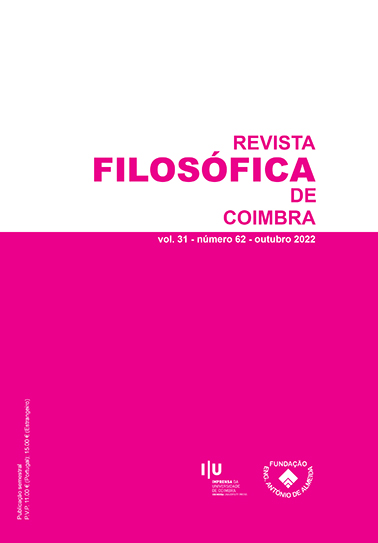A tempest in a skull
DOI:
https://doi.org/10.14195/0872-0851_62_5Palabras clave:
tempest, Extra‑phenomenal, tragic, pathetic, transformation, Duende, Freud, Victor Hugo, PéguyResumen
“A Tempest in a Skull”. The expression comes from Victor Hugo's Les Miserables, but it says just as much about Freud's life as it does about ours. No one is probably more 'disturbed', or descends to the depths of chaos, than when he or she takes on the trappings of a 'tidy' being, or is caught up in a cosmetic life apparently made of order and beauty.
Of course, “everything is fine” does not always hide “everything is bad”. But we must also recognize that there is often a 'tempest' in a skull, and that it is precisely at this moment that everything changes, and everything is modified within us. Based on this phenomenon, the leitmotiv "so much exception, so much modification" thus becomes the new imperative of phenomenology - not out of attachment to the tragic or the pathetic, but on the contrary to reach that part of us which is inexpressible and which is the strongest part of our existentiality. Garcia Lorca's Duende, as the “spirit of aching Spain”, will express in its own way this force “that burns the blood”, the only one capable of touching our own depths, magnified and exorcised by the rhythm of Andalusian singers.
Descargas
Publicado
Número
Sección
Licencia
Derechos de autor 2022 Revista Filosófica de Coimbra

Esta obra está bajo una licencia internacional Creative Commons Atribución 4.0.
Los autores conservan los derechos de autor y conceden a la revista el derecho de primera publicación, estando el trabajo simultáneamente bajo la Licencia de Atribución de Creative Commons que permite compartir el trabajo con el reconocimiento de la autoría y la publicación inicial en esta revista.











